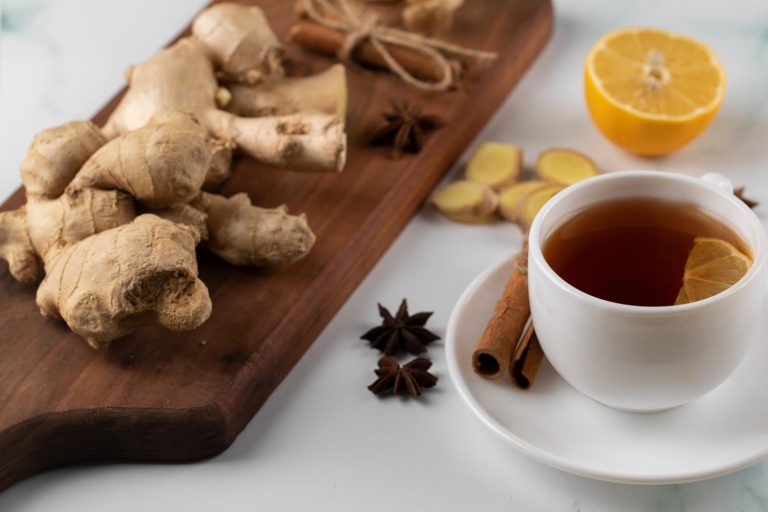Did you know that your liver plays a crucial role in detoxifying your body? It’s like the unsung hero of your digestive system, working tirelessly to process everything you eat and drink. Yet, in our fast-paced, modern lives filled with processed foods and stress, we often overlook its health. If you’re looking for a natural way to support your liver, herbal teas might just be the answer. Let’s dive into five herbal teas that can help boost your liver health naturally.
Contents
1. Milk Thistle Tea
What is Milk Thistle?
Milk thistle, known scientifically as Silybum marianum, has been used for centuries as a natural remedy for liver issues. The key active ingredient, silymarin, is a powerful antioxidant that helps protect liver cells from damage.
Benefits for Liver Health
Research suggests that milk thistle can help in the regeneration of liver cells and reduce inflammation. A study published in the journal Phytotherapy Research found that silymarin may improve liver function in people with chronic liver diseases, such as hepatitis C and cirrhosis (Abenavoli et al., 2016).
How to Prepare
Making milk thistle tea is simple. Steep 1 teaspoon of crushed milk thistle seeds in hot water for about 10-15 minutes. You can sweeten it with honey or add lemon for flavor.
Pros and Cons
Pros:
- Rich in antioxidants.
- Supports liver regeneration.
Cons:
- Might cause digestive upset in some people.
- Not recommended for pregnant women without consulting a healthcare provider.
2. Dandelion Root Tea
The Power of Dandelion
Dandelions aren’t just weeds; they’re packed with nutrients that can benefit your liver. Dandelion root has been traditionally used to promote digestion and liver health.
Benefits for Liver Health
Dandelion root tea is known to stimulate bile production, which helps in fat digestion and detoxification. Some studies suggest that it may help protect the liver from damage caused by alcohol and other toxins (Kim et al., 2017).
How to Prepare
To make dandelion root tea, boil 1 tablespoon of dried dandelion root in water for about 10 minutes. Strain and enjoy! You can add a dash of cinnamon for a warming effect.
Pros and Cons
Pros:
- Promotes bile production.
- May help with digestion.
Cons:
- Can interact with certain medications (especially diuretics).
- Not suitable for those with allergies to ragweed.
3. Ginger Tea
A Spicy Ally
Ginger is well-known for its anti-inflammatory properties, but did you know it can also support liver health? This spicy root can be a fantastic addition to your herbal tea repertoire.
Benefits for Liver Health
Ginger has been shown to help reduce liver inflammation and oxidative stress. A study published in the Journal of Nutritional Biochemistry indicated that ginger extract could protect the liver from damage caused by high-fat diets (Zhang et al., 2019).
How to Prepare
To make ginger tea, slice fresh ginger root and steep it in boiling water for about 10-15 minutes. Add honey or lemon for extra flavor.
Pros and Cons
Pros:
- Anti-inflammatory properties.
- Boosts digestion.
Cons:
- May cause heartburn in some individuals.
- High doses might affect blood sugar levels.
4. Turmeric Tea
The Golden Spice
Turmeric is often hailed as a superfood, and for good reason. Its active compound, curcumin, is known for its potent anti-inflammatory and antioxidant effects.
Benefits for Liver Health
Curcumin has been shown to enhance liver detoxification processes and reduce liver fat accumulation. A study in the Journal of Clinical Gastroenterology found that curcumin supplementation improved liver function in patients with non-alcoholic fatty liver disease (Zhang et al., 2018).
How to Prepare
To make turmeric tea, mix 1 teaspoon of turmeric powder with hot water. You can add black pepper to enhance curcumin absorption and honey for sweetness.
Pros and Cons
Pros:
- Strong anti-inflammatory properties.
- Supports detoxification.
Cons:
- May cause stomach upset in some.
- Can interact with certain medications, especially blood thinners.
5. Peppermint Tea
Refreshing and Revitalizing
Peppermint is not just a refreshing flavor; it also has properties that can benefit liver health. Its menthol content can help soothe the digestive system and promote bile flow.
Benefits for Liver Health
Peppermint tea may help alleviate digestive issues and support liver function by enhancing bile secretion. Some studies indicate that it can aid in fat digestion, which is crucial for liver health (Gonzalez et al., 2020).
How to Prepare
Making peppermint tea is straightforward. Steep fresh or dried peppermint leaves in boiling water for about 5-10 minutes. Enjoy it hot or iced!
Pros and Cons
Pros:
- Aids digestion.
- Refreshing flavor.
Cons:
- May exacerbate acid reflux in some.
- Not ideal for those with certain gastrointestinal conditions.
FAQs
1. How often should I drink these herbal teas for liver health?
While there’s no one-size-fits-all answer, incorporating these teas into your daily routine can be beneficial. Aim for 1-3 cups per day, but listen to your body and adjust as needed.
2. Can I use these teas if I have liver disease?
Always consult with a healthcare provider before adding herbal teas to your routine, especially if you have liver disease or are taking medications.
3. Are there any side effects to drinking these herbal teas?
Most people can enjoy these teas without issues, but some may experience digestive upset or allergic reactions. Start with small amounts to see how your body reacts.
4. Can I combine these teas for better results?
Combining teas can be a great way to enhance flavors and benefits. However, be cautious of potential interactions and consult with a healthcare provider if you’re unsure.
Conclusion
Supporting liver health doesn’t have to be complicated or expensive. Incorporating herbal teas into your daily routine can be a delicious and natural way to give your liver a boost. Whether you opt for the protective properties of milk thistle, the digestive support of dandelion root, or the anti-inflammatory benefits of turmeric, there’s a tea for everyone.
As always, listen to your body and consult with a healthcare professional if you have any concerns. Here’s to your liver health—cheers with a warm cup of herbal goodness!
Disclaimer: This article is for educational purposes only and is not a substitute for professional medical advice. Always consult a qualified healthcare provider before making changes to your health routine.
References
-
Abenavoli, L., et al. (2016). Milk thistle: A review of its effects on liver diseases. Phytotherapy Research. https://doi.org/10.1002/ptr.5584
-
Kim, H., et al. (2017). Dandelion root extract protects against liver damage. Food Chemistry. https://doi.org/10.1016/j.foodchem.2016.10.069
-
Zhang, Y., et al. (2019). Ginger extract protects against liver injury in rats. Journal of Nutritional Biochemistry. https://doi.org/10.1016/j.jnutbio.2018.11.002
-
Zhang, X., et al. (2018). Curcumin supplementation improves liver function in patients with non-alcoholic fatty liver disease. Journal of Clinical Gastroenterology. https://doi.org/10.1097/MCG.0000000000001023
-
Gonzalez, M. J., et al. (2020). The role of peppermint in digestive health. Journal of Medicinal Food. https://doi.org/10.1089/jmf.2019.4575
Get Your FREE Natural Health Guide!
Subscribe now and receive our exclusive ebook packed with natural health tips, practical wellness advice, and easy lifestyle changes, delivered straight to your inbox.




